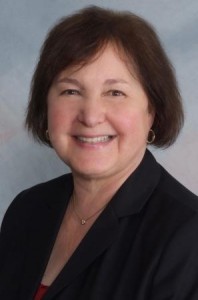NSU Newsroom
SharkBytes
Horizons
This version of NSU News has been archived as of February 28, 2019. To search through archived articles, visit nova.edu/search. To access the new version of NSU News, visit news.nova.edu.
This version of SharkBytes has been archived as of February 28, 2019. To search through archived articles, visit nova.edu/search. To access the new version of SharkBytes, visit sharkbytes.nova.edu.
Diagnosing autism lags in some communities
April is Autism Awareness Month and the United Nations has designated April 2 as World Autism Awareness Day, with this year’s theme “Inclusion and Neurodiversity.” As a way to continue awareness for autism, we at NSU will be wearing blue on April 4 to recognize World Autism Awareness Day and support our families and friends who need their communities to support them.
Nowhere do we see more diversity than on the autism spectrum. People on the spectrum exhibit a wide range of symptoms in the social, communication, behavioral and cognitive areas. Oftentimes, individuals who are socially oriented and like to be with people are not diagnosed because they don’t fit our “older” perceptions of what autism is.
It is critically important for people with autism to be identified as early as possible to ensure that they receive the most appropriate and intensive treatment possible for this challenging disorder. Although the Centers for Disease Control and Prevention continues to use the prevalence rate of 1:68, a study this year reported a prevalence of 1:45 people have autism.
Now, almost everyone knows someone who is affected by autism whether it is a neighbor, co-worker or family member. It is likely that every teacher has had a student with autism. Although we have made progress identifying people with autism at younger ages, there is still a disparity between when Hispanic and black children are identified and when white children are identified. We must close that gap.
As part of the university’s Realizing Potential philanthropic campaign, the Taft Foundation recently awarded a grant to the Unicorn Children’s Foundation Clinic at Nova Southeastern University’s Mailman Segal Center. It provides for training throughout our community in recognizing “red flags” for autism. This will target those who work with young children, including child care centers, medical personnel and parents who are concerned about their children’s development. It will also allow NSU to provide parent and professional training to build knowledge and skills about effective interventions for this disorder. NSU’s Starting Right program for 18-36 month olds provides an intensive parent training/child intervention program for children who are at risk for, suspected of having autism or already diagnosed with this disorder.
A recent research study carried out by the Karolinska Institutet in Sweden found that there is a high rate of premature mortality in individuals with autism spectrum disorder due to a variety of co-occurring medical conditions, including intellectual disability, mental health disorders and seizures. This study found that individuals with autism had a life expectancy 16 years below the average. For individuals who were lower functioning with autism, seizures were a primary cause of death. For those who were higher functioning, suicide was more commonly the cause. As NSU prepares to open our Center for Collaborative Research this fall, we are proud to be partnering with this highly respected research organization and know that our current educational, clinical, academic and research activities will be enhanced by the exciting possibilities this partnership brings to NSU.
The more we learn about autism, the more we recognize that we need to learn more. The more people who are affected by autism, the more we see that we need to find ways to include those with this disorder in our post-secondary educational institutions as well as provide employment opportunities for these often highly skilled individuals. This complex, diverse disorder forces all of us to work together to increase program funding for earlier identification; quality educational, clinical and employment services; and train a workforce to support those with autism throughout their life spans.
Please join NSU on April 4 and wear blue in support of Autism Awareness!
Dr. Susan Kabot is director of clinical programs at NSU’s Mailman Segal Center for Human Development.
Be sure to sign up for NSU’s RSS feed so you don’t miss any of our news releases, guest editorials and other announcements. Please sign up HERE.
###
About Nova Southeastern University (NSU): Located in beautiful Fort Lauderdale, Florida, Nova Southeastern University (NSU) is a dynamic research institution dedicated to providing high-quality educational programs at the undergraduate, graduate, and first-professional degree levels. A private, not-for-profit institution with more than 24,000 students, NSU has campuses in Fort Lauderdale, Fort Myers, Jacksonville, Miami, Miramar, Orlando, Palm Beach, and Tampa, Florida, as well as San Juan, Puerto Rico, while maintaining a presence online globally. For more than 50 years, NSU has been awarding degrees in a wide range of fields, while fostering groundbreaking research and an impactful commitment to community. Classified as a research university with “high research activity” by the Carnegie Foundation for the Advancement of Teaching, NSU is 1 of only 37 universities nationwide to also be awarded Carnegie’s Community Engagement Classification, and is also the largest private, not-for-profit institution in the United States that meets the U.S. Department of Education’s criteria as a Hispanic-serving Institution. Please visit www.nova.edu for more information.
